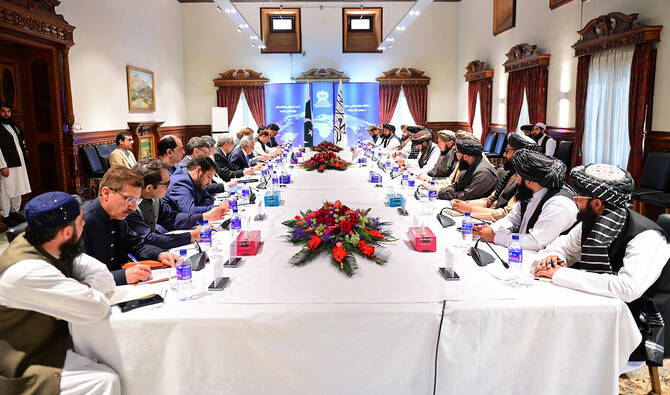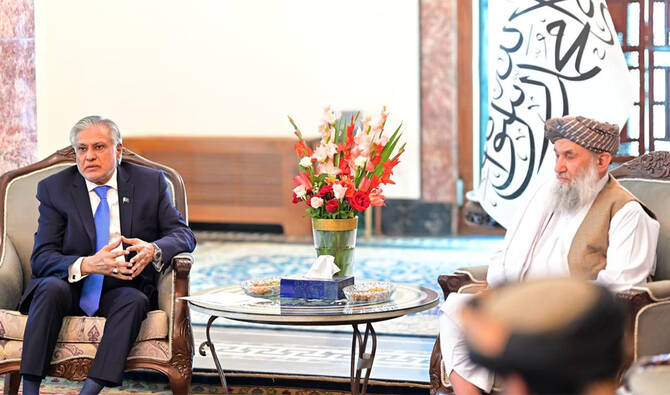ISLAMABAD: When Fahad Saif quit his corporate job in 2016 to start a bespoke suiting business in Islamabad, he never thought he would be designing clothes for the highest office in the land.
About a month ago, a member of the ruling Pakistan Tehreek-e-Insaf party and a longtime client of Saif’s said he would put in a good word about the brand with Prime Minister Imran Khan. A week later, Saif got his first order to make seven shalwar kameez for the premier.
“This is as high as it gets,” Saif, 34, the founder and CEO of luxury clothing brand Mohtaram, told Arab News on Tuesday.
“We just happened to have a few very close clients from the (ruling) political party and they just naturally recommended us to Prime Minister (Imran Khan),” Saif added. “It felt surreal receiving Mr. Khan’s order.”
“It happened so fast that we really didn’t have the time to absorb the entire thing,” the entrepreneur said smilingly when asked about his experience of dressing the prime minister. “Actually I’ll give a lot of credit to him [Khan] and his team that they made it very effortless for us.”
Saif initially started his business by making bespoke shirts and has now moved on to suits, shalwar kameez, waistcoats and even sherwanis, which he is currently designing for PM Khan.
The company’s official tagline is “Made Proudly in Pakistan,” and the concept behind Mohtaram, which means ‘gentleman’ in Urdu, is to combine history, culture and the modern aesthetic to produce clothes for the perfect Pakistani gentleman.
“To be able to deliver our manifesto ‘Made Proudly in Pakistan’ to the highest office was more fulfilling than any other campaign we aspired to work on," Saif posted on his company’s Instagram page.
He says he was thrilled to see Khan wearing one of Mohtaram’s designs during a parliamentary session earlier this week though Arab News could not immediately verify that it was one of Saif’s creations.
“I observed that it seemed like one of our cuts and one of our patterns,” Saif said. “We have a few signature parts to our designs that at least we can now recognize.”
Khan’s measurements for the first order were delivered to Mohtaram but Saif hopes he will get to meet the prime minister personally to take his next order and also speak to him about more government support for startups that Saif said had the potential to contribute to Pakistan’s ailing economy.
“I would probably want to talk [to the PM] about how startups like ours can contribute to the development of the overall economy,” Saif said.






















